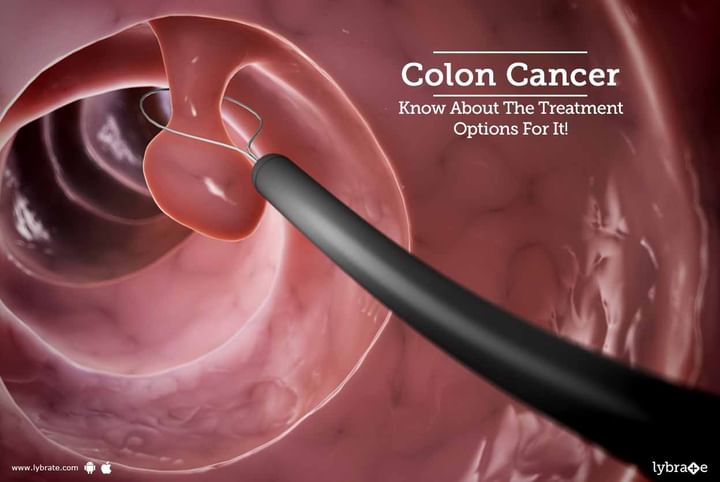Colon Cancer - Know About The Treatment Options For It!
Colon cancer, also known as Colorectal cancer, occurs in the rectum or the colon. Colon is the last part of the large intestine that is connected to the anus. The food which is not absorbed and not digested in the small intestine enters the colon and finally gets flushed out through the anus. As you may know, cancer occurs when your body’s control mechanism stops functioning, leading to the formation and uncontrolled growth of abnormal cells in the body. These newly-formed cells form a mass of tissue known as tumor, which results in cancer.
Colon cancer initially develops as polyps. Polyps are abnormal growth found inside the rectum or colon, which may become cancerous if not treated at an early stage.
Early symptoms of colon cancer include- constipation, rectal bleeding, change in bowel habits, pain in the abdomen etc.
Cancer grows in stages- gradually spreading through the mucosa, lymph nodes, and eventually affecting your lungs or liver.
Treatment -
Treatment of colon cancer depends on its stage, and the three most effective treatment options recommended by the doctor are- radiation, chemotherapy and surgery.
1. Radiation: During a radiation therapy, powerful beams of X-ray are directed to destroy the cancerous cells and shrink large tumors before performing a surgery so that they can easily be removed from the body. It also helps in reducing the symptoms of colon cancer.
2. Chemotherapy: Chemotherapy is recommended after a surgery in case the cancer has spread to the lymph nodes. A standardized chemotherapy treatment uses a single or a combination of anti-cancer drugs to prevent the cancer from recurring. These are either inserted directly into your bloodstream or targeted to particular cancer sites.
3. Surgery: If you’ve been diagnosed with colon cancer in the early stage, your doctor will most likely recommend a minimally invasive approach to surgery such as-
- Colonoscopy- during which the cancerous polyps are removed.
- Endoscopic Mucosal Resurrection- during which the polyps are removed along with a small portion of the lining of the rectum or colon.
- Laparoscopic Surgery- during which an instrument attached with cameras is inserted into your body to display and monitor the colon, and multiple small incisions are made in the abdominal wall.
If the cancer has spread through or into your colon, you may have to undergo the following treatment options-
- Partial colectomy- The portion of the colon containing the cancer, along with the edge of the adjacent normal tissue is removed.
- Ostomy- This surgery is performed to create an opening in the abdominal wall for the disposal of waste products.
In case the cancer has reached an advanced stage, it can take a toll on your health as a result of low immunity. In this case, you will be recommended a surgery to relieve a blockage of the colon or underlying conditions to refine your symptoms.
Apart from these, there are a few quick-tips that you should keep in mind- visit your doctor for frequent follow-ups, switch from a high-fat, high-protein diet to a balanced healthy diet with lots of fruits and vegetables. Cancer treatment can be very strenuous and emotionally draining, so the best way to fight cancer is to prevent it from the very beginning.
In case you have a concern or query you can always consult an expert & get answers to your questions!



+1.svg)
